In a hall full to capacity, Eritrean demonstrators for justice assembled to plan the next steps for taking their movement forward.
A day earlier, on August 31, a large crowd variously estimated at 2,000 to 3,000, had marched the streets of Geneva calling on the Government of Eritrea to lift the state of siege it has imposed on the people of Eritrea by using the war with Ethiopia as a pretext. They waved colorful banners like “Dankalia is Not For Sale”, “Peace Yes, Conspiracy No”, “Yes To Lasting Peace, No to Addition Fetish.” They shouted “Isaias Must Go!” and “Down, Down, Dictator.” The demonstration started at Parc des Cropettes and ended where it usually does: at the UN Headquarters. There, Eritreans delivered their request (to the world, if it listens) that they are demanding “justice and liberty” whose components are: (1) constitutional government; (2) release of all political prisoners and prisoners of conscience; (3) respect for civil and political rights; (4) political pluralism; (5) demobilization of those in compulsory military service for indefinite periods.
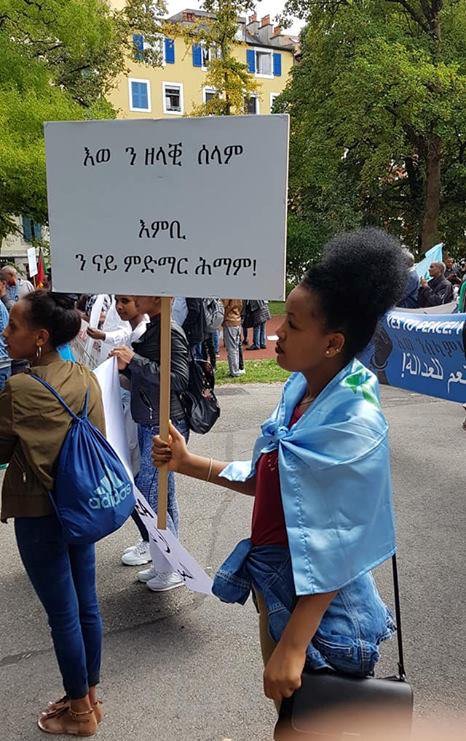
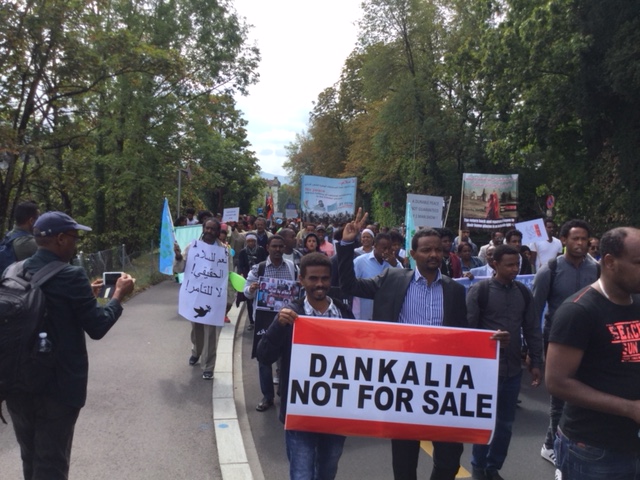
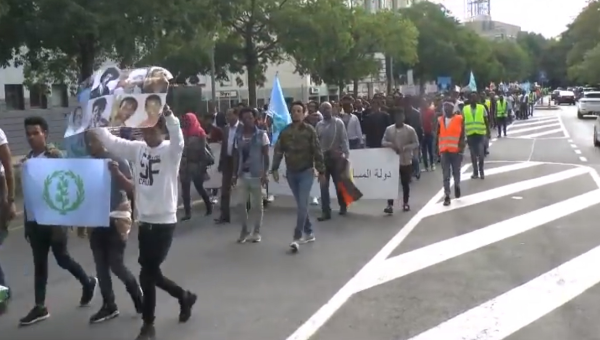
The next day, Sepetmber 1, in a hall holding a capacity crowd, Eritreans had a spirited discussion on the path forward. All Eritreans who want to bring about change recognize that a Pan-Eritrean movement must be created which, until situations permit at home, must be based in exile. Towards that end, the assembled Eritreans elected a task force which includes Abraham Tesfay, Khedijah Mohammed Taha, Said Tewekel, Berihu Kidane, Abraham Iyassu, and Feven Hadera. Of course, this is not the first time Eritreans had gathered and set a criteria for a task force: that the candidates must be able, willing and reflect Eritrea’s diversity. Of course, this is not the first time the elected were given a mandate: to focus on mobilization and communication towards convening an all-inclusive Eritrean movement. Of course, this is not the first time that Eritreans have disagreed with such an approach. Of course, this is not the first time that some have felt that this is a duplication of efforts as just weeks earlier Eritreans had gathered in Denver and Atlanta, and before that in Frankfurt, and before that in Nairobi and before that in Debrezeit and before that in Hawasa. But until a workable plan is agreed upon, Eritreans are destined to keep on trying.
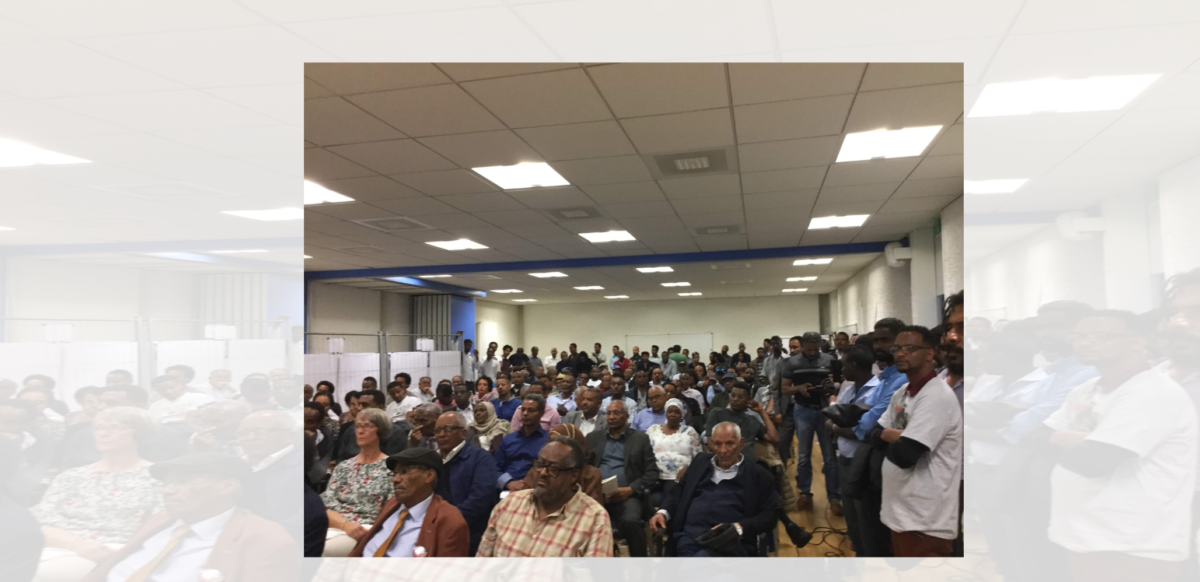
Meanwhile, 9,400 kilometers away, Massawa awaited the arrival of a ship from Ethiopia. This cargo ship, named Mekele, was docking to load metals (courtesy of Nevsun) to Saudi Arabia and, from there, head on to China. How was the maritime law observed and treaties reached in such a short time? We don’t know. In any event, even this information was, of course, courtesy of Ethiopian media because Eritrea’s degradation continues from private and state media to state media and now to no media. The arrival of the ship was upstaged, however, by the arrival of Ethiopian Prime Minister Abiy Ahmed, who landed in a different port: the hitherto deserted Asab. This “unannounced” visit, reminiscent of the “unannounced” visits Ethiopia’s former Prime Minister Meles Zenawi used to have in the 1990s when enroute to or returning from some conference (in this case PM Abiy was returning from China) had not been reported even by the Ethiopian media. The two BFFs (Abiy and Isaias) then drove from Asab to Massawa (a journey Isaias Afwerki used to take with his dearly departed BFF, Libya’s Moammer Kaddafi) where they met up with another new friend, Somalia’s president Mohammed “Formajio” Abduhali. And then, with their wives, and unaccompanied wife Minister Askalu Menkorios (whose husband is one of the Isaias Afwerki regime-disappeared Eritreans since wikileaks disclosed he had made disparaging remarks about Isaias Afwerki) waiting in the waiting room, the three presidents signed agreements which, we will be told vaguely, are about “strengthening trilateral relationships.” Smiles were exchanged, ceremonial coffee was had and concert-T-shirt-giveaways were worn.
Meanwhile, proving one more time that sometimes bad guys get away with it, Canada’s Nevsun, which is facing a lawsuit by Eritreans for its collusion with the Government of Eritrea in using their forced labor, lucked out and found a white knight: China’s Zijin Mining Group Co is acquiring it for 1.4 billion. In cash. This works out to $6/share, which the company hadn’t been traded in since its heydays in 2011. China’s Zijin is even less likely to be a responsible corporate citizen although, since its an equity purchase, it has to inherit its liabilities too (lawsuit included.)
This is to say that the Government of Isaias Afwerki is having, no doubt, a good week. It is to say that those who oppose the Government of Eritrea because it is a criminal entity which victimizes the people (amounting to crimes against humanity per UN assigned investigators and relying on hundreds of Eritreans testimonies) and is terrified of reform because that will be the end of it, will continue to oppose. Those who are fickle or lose hope easily will lose hope. Those who wait for change to come to them on a platter will. Those who are incapable of doing self-reflection will not consider making strategic or tactical changes and like, the PFDJ, will say, “lets just go ahead.” Either way, it is a choice. And in due time, Finance Minister Berhane Abrehe’s book will come out and secrets will be revealed and the forgotten will be remembered until it is forgotten again. But, no matter which Eritrean is organizing or petitioning or fighting, the calls remain:(1) constitutional government; (2) release of all political prisoners and prisoners of conscience; (3) respect for civil and political rights; (4) political pluralism; (5) demobilize our youth. And, honor the right of return of hundreds of thousands of refugees and exiles.
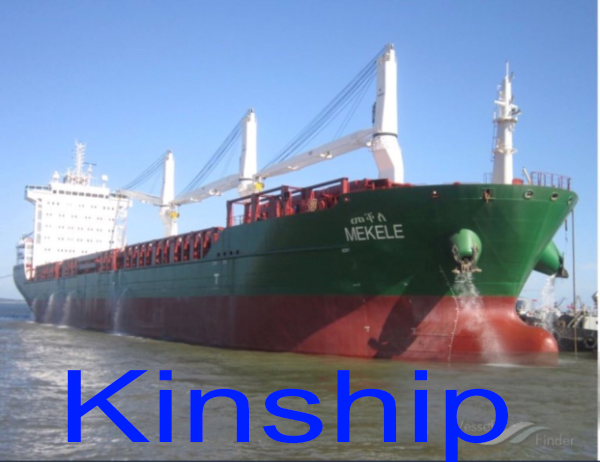
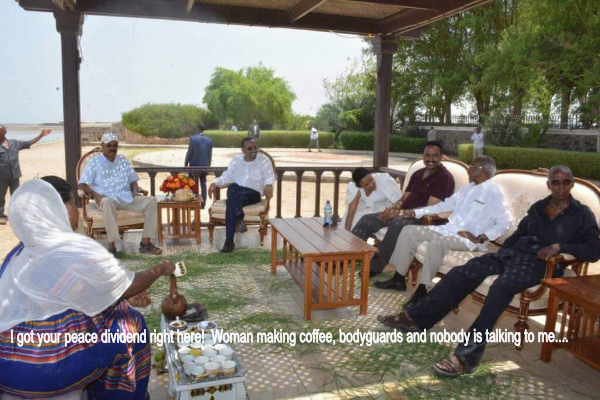
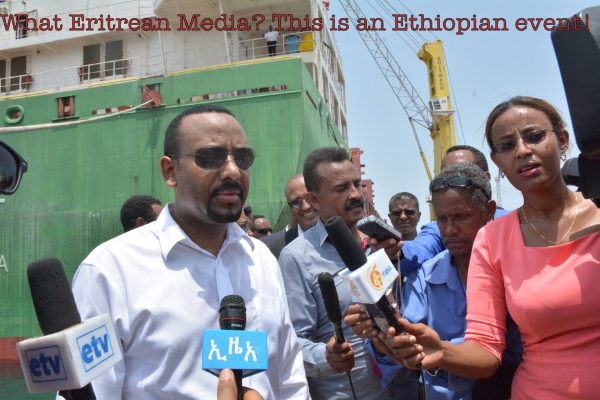
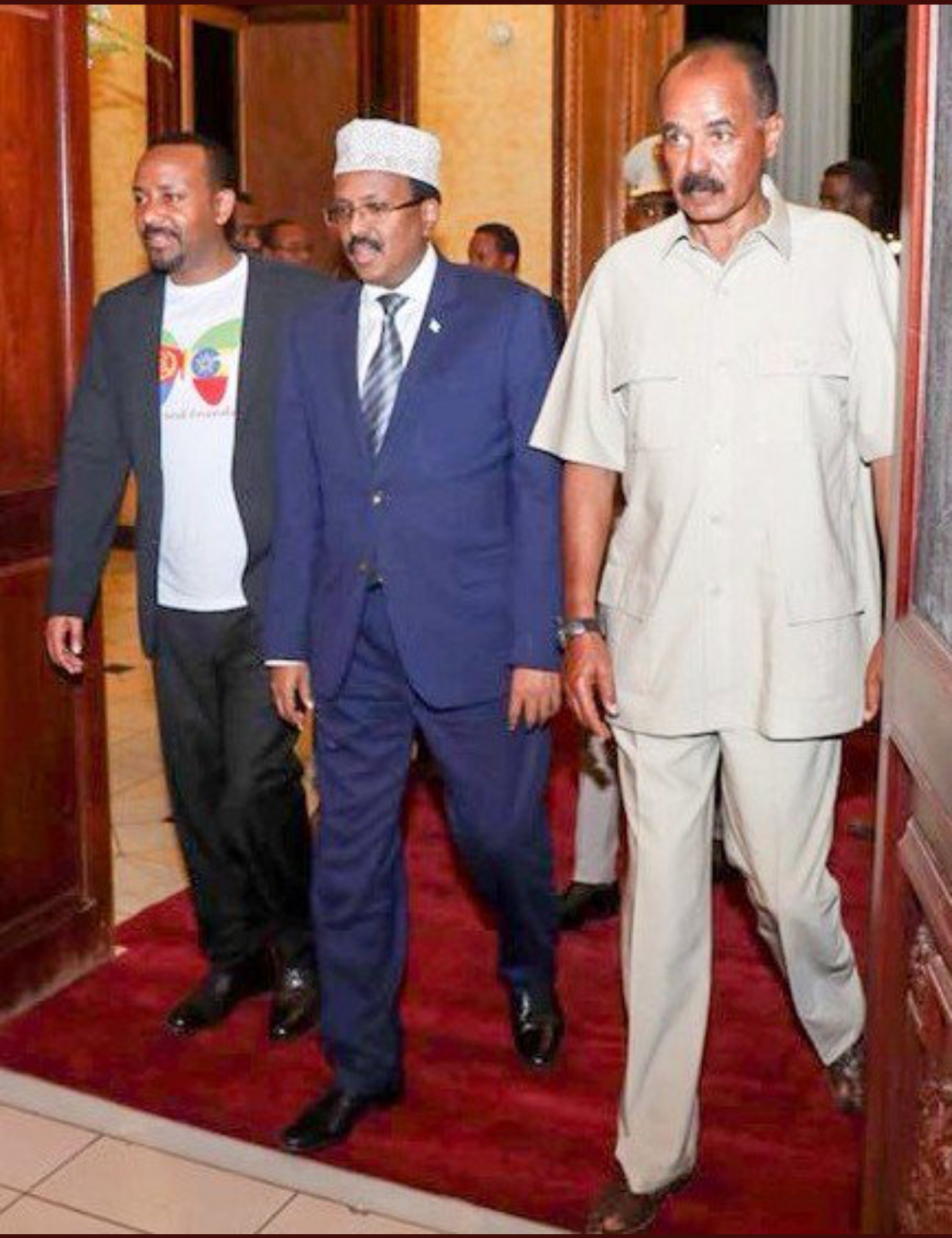
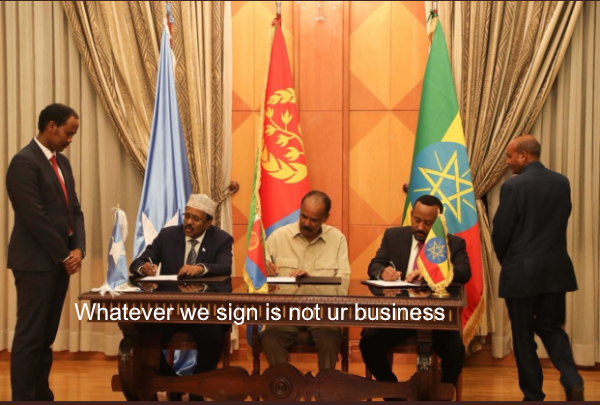
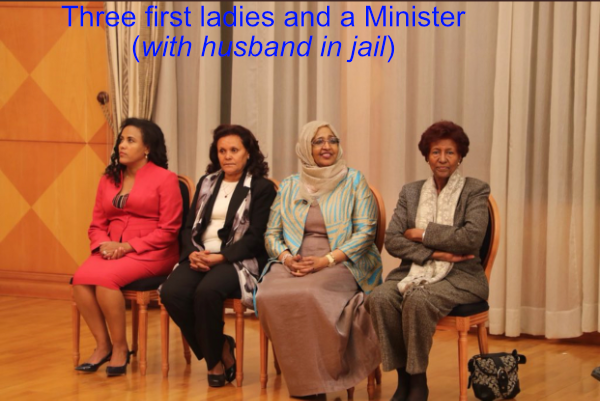

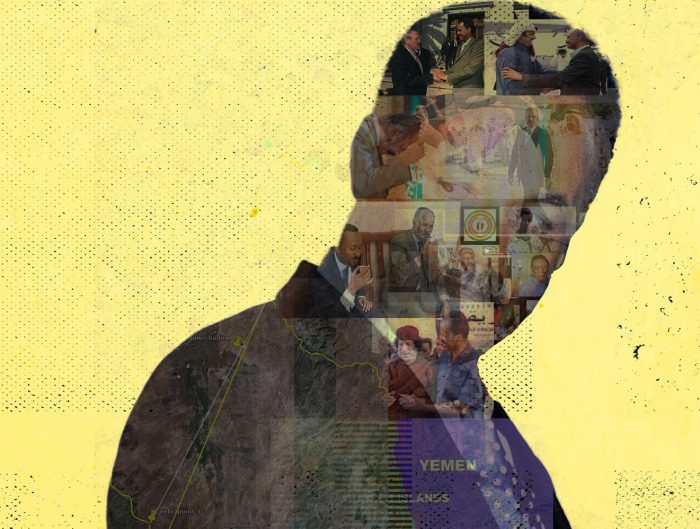
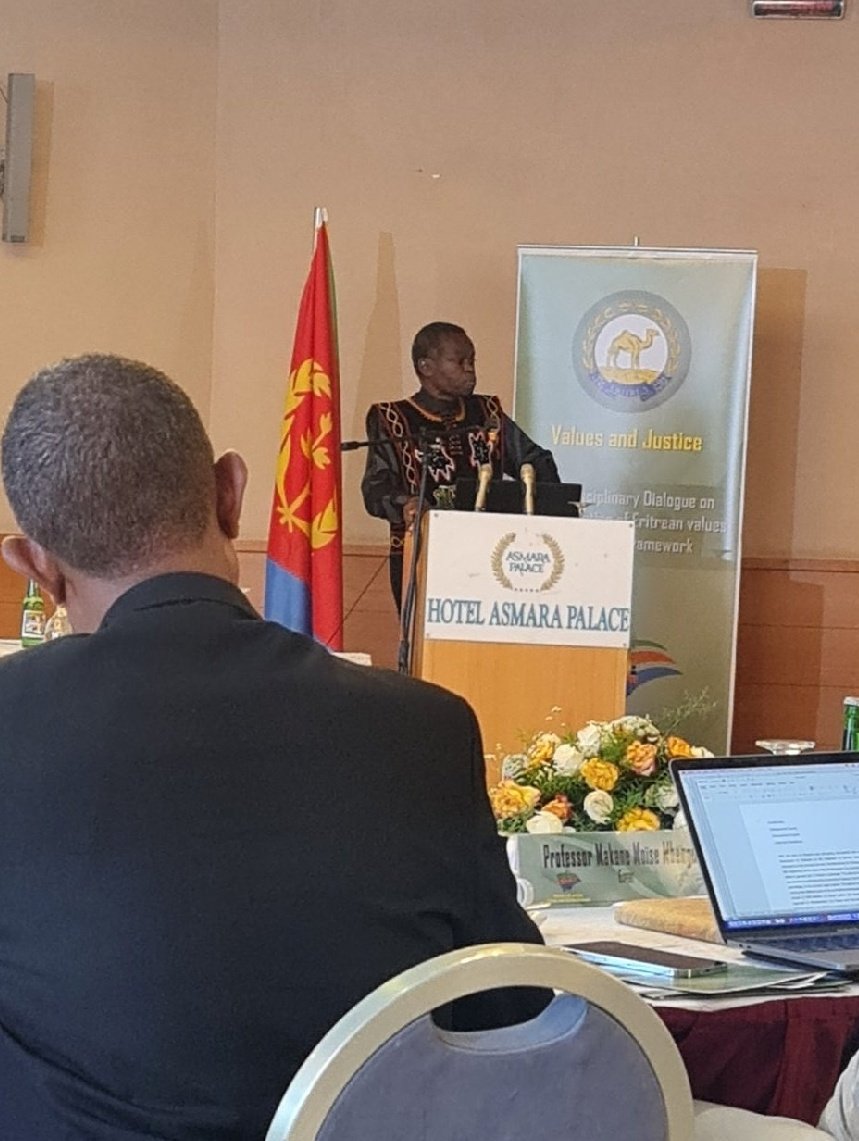


Leave A Reply